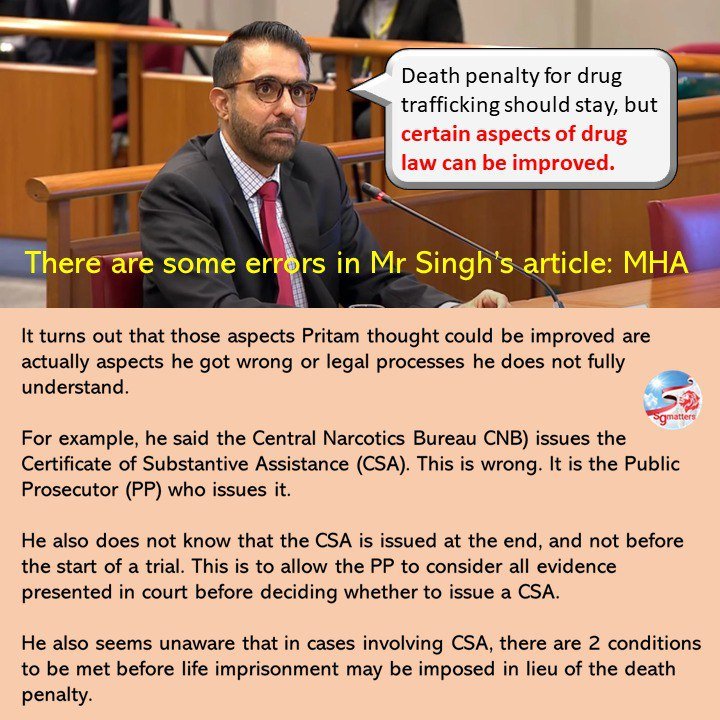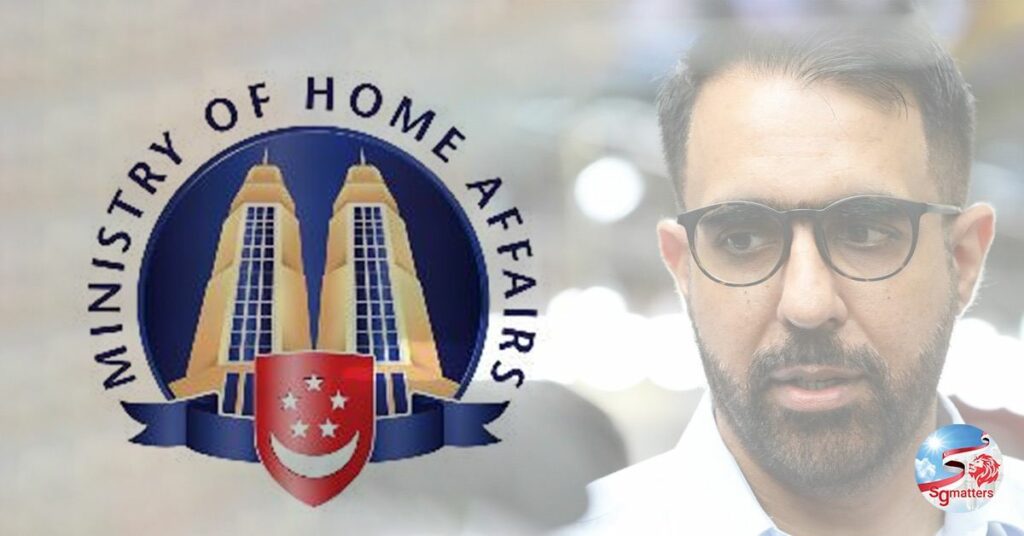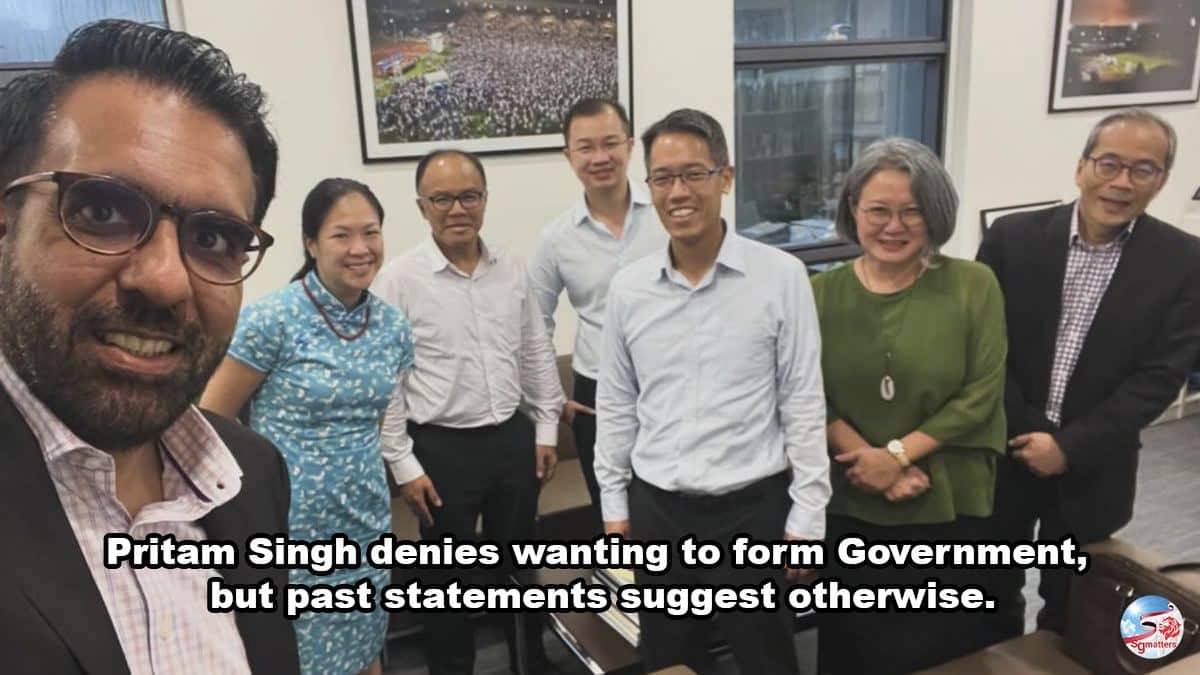
The Ministry of Home Affairs (MHA) has on Tuesday (6 September) responded to a commentary by the Leader of the Opposition, Pritam Singh, on the death penalty in Singapore, which was published by Today (“Death penalty for drug trafficking should stay, but certain aspects of drug law can be improved”)
Broad agreement
MHA noted that Mr Singh’s views are in broad agreement with Singapore’s zero-tolerance stance against drugs. He accepts the necessity of the death penalty, and acknowledges its deterrent effect, without which there would be more traffickers bringing larger amounts of drugs into Singapore. He also accepts that the criminal nature of the drug trade, and the devastating impact of drugs on society, should feature more strongly in the discourse of abolition advocates.
Errors in Mr Singh's article
MHA pointed out 3 errors in Mr Singh’s article.
It does appear from MHA’s response that the aspects of drug law that Mr Singh thought could be improved are actually aspects that he got wrong or legal processes he does not fully understand.
For example, he said the Central Narcotics Bureau CNB) issues the Certificate of Substantive Assistance (CSA) when actually it is the Public Prosecutor (PP) who issues it.
He also does not know that the CSA is issued at the end of a trial, not before the start of a trial. This is to allow the PP to consder all evidence presented in court before deciding whether to issue a CSA.
Mr Singh also seems unaware of the fact that in cases involving CSA, there are 2 conditions to be met before life imprisonment may be imposed in lieu of the death penalty.
The errors in Mr Singh's commentary
On the errors, here’s MHA’s response reproduced:
First, Mr Singh says that the Central Narcotics Bureau (CNB) issues the Certificate of Substantive Assistance (CSA). This is inaccurate.
The Public Prosecutor (PP) decides on the issuing of the CSA, under s 33B(2)(b) of the Misuse of Drugs Act. The reason for this was most recently affirmed by the Court of Appeal in the cases of Nagaenthran a/l K Dharmalingam v PP [2019] and in Rosman bin Abdullah v PP [2017]. CNB will of course advise the PP.
Second, Mr Singh referred to the case of Farid Batra (“Farid”), where he said that CNB did not issue a CSA prior to his trial but had “interestingly” issued one after the substantive judicial process had run its course, after the Court of Appeal ruled that Farid was a courier.
In Mr Singh’s view, this case illustrated that the decision to withhold the issuance of a CSA prior to trial can be “wrong” or “unjustified”.
Mr Singh has misunderstood the process. The PP decides on the CSA, based on whether the accused has substantively assisted the CNB in the disruption of drug trafficking activities. It is not dependent on whether the Court finds the accused to be a courier.
And, the practice is that the CSA is issued at the end of court proceedings. This is to allow the PP to consider all evidence presented in Court, in order to assess whether the CSA should be issued. Thus, contrary to what Mr Singh had suggested, the CSA was not withheld, and then issued at the end of the trial.





